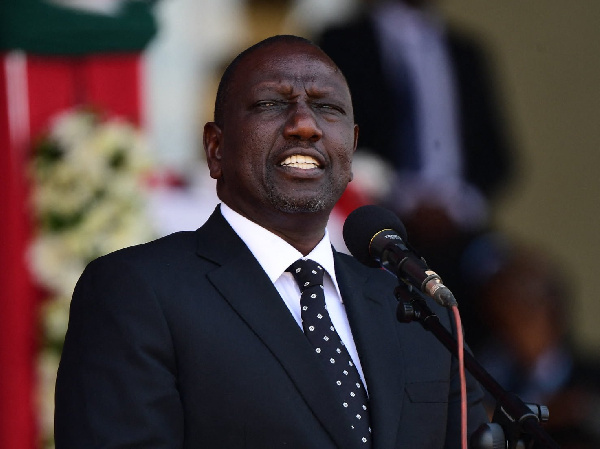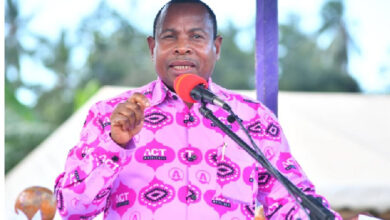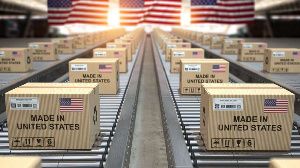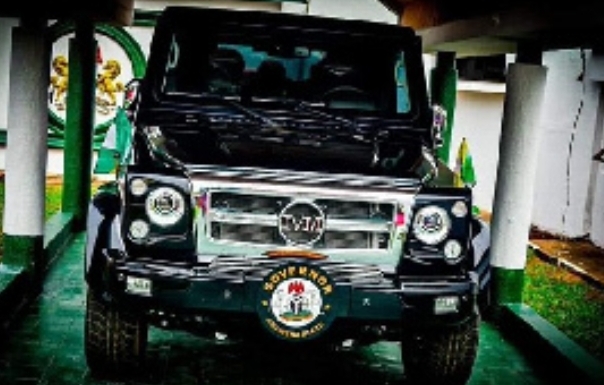Protests erupt after allegations of Senegalese leader’s detention

Just one day prior, Sonko – founder of the left-leaning PASTEF party – had attempted to lead what he called a “caravane de la liberté” or a “freedom caravan” from the town of Ziguinchor, where he serves as mayor, to Dakar.
But the convoy of vehicles was deemed illegal and diverted to a home Sonko has in Dakar.
Interior Minister Antoine Felix Diome denied that Sonko has been arrested, but supporters and fellow politicians have claimed that security forces prevented them from visiting him.
Police also allegedly blocked roads around Sonko’s residence in Dakar’s Keur Gorgui district. Those restrictions have spurred concerns about Sonko’s rights and the fate of Senegal’s upcoming 2024 presidential election, in which the PASTEF leader is a candidate.
“The restrictions imposed on Ousmane Sonko’s freedom to come and go, without notification, are illegal and must end,” the Senegalese branch of the rights group Amnesty International posted on Twitter, calling on authorities to follow the rule of law.
El Malick Ndiaye, the national secretary of communications for PASTEF, issued a strongly worded declaration on his own Twitter account. Dubbing the PASTEF candidate “President Sonko”, Ndiaye accused the Senegalese authorities of confiscating Sonko’s phones, laptop and personal effects and barricading his house.
“They are refusing access to his staff, his lawyer and his parents coming to visit him,” Ndiaye wrote. “We can tell you that President @SonkoOfficiel is now in prison. We have to fight to free him.”
Interior Minister Diome has responded to the criticism by telling the Senegalese broadcaster RTS that it is the “prerogative of the state to maintain public order and preserve the security of people and property”.
In protest, supporters allegedly threw rocks at police outside Sonko’s home, while law enforcement responded with tear gas.
It was the latest surge of violence in the heated rivalry between Sonko and current President Macky Sall, a centrist representing the Alliance for the Republic party.
Earlier this month, at least one teenager was killed and 30 people wounded in Dakar after Sonko called for protests in response to his ongoing legal woes.
He had recently received a suspended sentence of six months in a defamation case after an appeals court decided to increase the penalty he faced. Initially, in March, he had been handed a two-month suspended sentence.
The ruling threatens to make him ineligible for the upcoming presidential race. Sonko is expected to return to court on June 1 for another case, this time to face allegations he raped and threatened a woman in a massage parlour in 2021.
Prosecutors intend to seek a sentence of 10 years at the hearing, which could likewise derail Sonko’s race for the presidency.
Meanwhile, Sonko and his allies have accused President Sall of trying to sabotage his candidacy. Sonko previously ran against Sall in the 2019 presidential election, placing third.
Normally, Senegalese presidents are limited to two terms. But critics fear Sall might use a constitutional change in 2016 as an excuse to vie for a third term.
When Sall was first elected in 2012, a single presidential term ran for seven years. But in 2016, Senegal held a referendum to cut presidential terms to five years.
Sall served his full seven-year term and then was reelected in 2019 to serve a five-year term. But he has implied in media statements that the constitutional reform reset the clock – and that he would be eligible to run for a second five-year term under its provisions.
This has been a highly controversial assertion in Senegalese politics, leading to questions about whether Sall will run again in 2024 – and about the strength of the West African nation’s democracy.
Source: aljazeera.com





